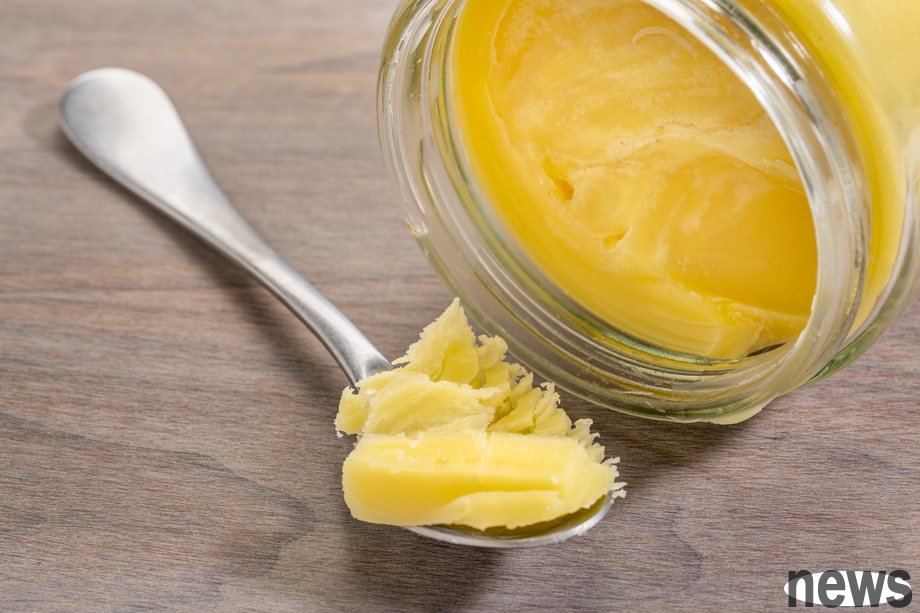
Facial friend Sherry posted a brief message on 2024-11-7:
Professor Lin, my boyfriend just posted a news, which was about the effect of ghee on the kidneys. Because I saw it very strange, I wanted to find out if it was correct, butter was not mentioned on the website of the professor, so I wanted to ask the professor, thank you! (Note: Sherry said in the next briefing that she bought my entire series of books on "Science on the Table". Although she hasn't finished reading it yet, she is very happy that she has quit all vitamins and uses prototype food as a source of nutrition)The news sherry said is an article published on "Sanli News Network" on November 7, 2024, not olive oil! "1 type of oil" can repair kidney tract cells and resist inflammation: can be called a natural elixir. Its first paragraph is: It is generally considered that diet and fatty acids are not good for health, but home doctor Li Siqin said that ghee (called Ghee in English, also known as waterless cream) contains a higher concentration of butyric acid, which helps the repair and regeneration of kidney tract cells. For patients with leaky diseases, it is a natural "elixir" that can reduce systemic inflammation reactions and improve immunity.
There are two sentences in this article:
1. Li Siqin said that ghee contains almost only fat, so it is a safer choice for people who are allergic to lactose or milk protein.2. He said that ghee and cream both contain small amounts of natural trans fats (different from artificial trans fats), as well as co-olite oleic acid (CLA), which help weight control and may provide some health benefits.
In fact, the benefits of ghee for health have been circulated online for more than 20 years, but the bragging is getting bigger and bigger every year. For example, Ghee: Benefits, Nutrition, and How to Use, published by fake doctor Berger on 2024-10-14. Its first paragraph is: For several centuries, ghee has been the cornerstone of traditional Indian cuisine and Ayurvedic medicine. This golden clarified cream is not only a rich and delicious cooking fat, but also a nutritious food that can enhance your health and well-being. Learn about three impressive benefits of ghee and learn how to incorporate this versatile fat into your health.
The above paragraph says that "ghee has always been the cornerstone of traditional Indian cuisine and Ayurvedic medicine", but in fact, the realm of ghee is far higher than "food" and "medical studies".
"Daigutou" is a well-known and well-known language, and it is actually a very noble Indian religious ritual. The "Daigu" used in it is "ghe". Please see Wikipedia, Baidu Encyclopedia, Han Dictionary, and Ministry of Education's Adult Dictionary.
Use Ghee to search for the public medical library PubMed, and there will be 133 articles, most of which are from India. It can be seen that these ghee articles are benefiting from India.
None of these 133 articles are related to "repair and regeneration of kidney tract cells", "leakage", "systemic inflammation reaction", "immunity enhancement", "latchose or milk protein allergy", or "weight control". As for the correlation between butyric acid and co-oleic acid contained in ghee and these physical conditions, the top is just a wiping ball. (Please see below)
English Nutrition Journal published Effects of diets rich in ghee or olive oil on cardiometabolic risk factors in healthy adults: a two-period, crossover, randomised trial (A two-period, crossover, randomised trial) on 2022-11-14. The conclusion is: Compared with olive oil, ghee, which mainly focuses on raw and fat, on blood lipoprotein B and non-HDL The impact of citric sterols is greater, providing further evidence for the existing suggestion to replace dietary fat rich in dietary fats with dietary fats rich in dietary fats.
The effects of replacing ghee with rapide oil on liver steatosis and energymes, lipid profile, insulin resistance and anthropometric measurements in patients with non-alcoholic fatty liver disease: a randomised controlled clinical Trial (the effect of replacing ghee with rapeseed oil on liver fat change and enzyme, blood lipid, intraocular resistance and human measurement in patients with non-alcoholic fatty liver: a random control clinical trial), concluded that using rapeseed oil instead of ghee can improve liver fat change and enzyme, blood sugar variables and human measurement results in patients with non-alcoholic fatty liver.
Cliffland Clinic published Better Than Butter? Separating Ghee Fact From Fiction (Is it better than cream? Divide ghee facts from virtual structures), and the ending is:
Registered Nutritionist Candace O’Neill clarifies three common health claims about ghee:
1. Cream and ghee have low lactose and casein content, so there is no saying "ghee is a safer option for people with allergies to lactose or milk protein."2. Ghee contains about 1% butyric acid, which is insignificant compared to butyric acid produced by the kidneys. You can also get a lot of butyric acid by eating fiber-rich foods such as fruits, vegetables, whole grains and beans. These foods are a better way to improve kidney health.
3. Ghee and cream contain a compound called co-corrosive oleic acid (CLA), which may help reduce fat, but the content of CLA is minimal, whether it is ghee or cream. (Note: Please see my published co-elixoleic acid, fattening, no side effects?)
The conclusion of this article is: Choosing ghee should be a personal preference, not based on any perceived health benefits. The potential compounds contained in ghee are not enough to improve your health.
Original text: Ghee is a elixir, Dr. Li is enlightenedEditor: Gu Zihuan
